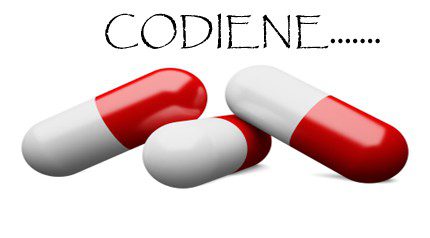
Although there are recommended limits on codeine use in children, a new study reveals that codeine is prescribed to pediatric patients in at least 500,000 emergency room visits annually. According to the decade-long study, in 2010 alone, 3 percent of pediatric emergency room visits led to a codeine prescription. With over 25 million ER visits […]
 Although there are recommended limits on codeine use in children, a new study reveals that codeine is prescribed to pediatric patients in at least 500,000 emergency room visits annually.
Although there are recommended limits on codeine use in children, a new study reveals that codeine is prescribed to pediatric patients in at least 500,000 emergency room visits annually.
According to the decade-long study, in 2010 alone, 3 percent of pediatric emergency room visits led to a codeine prescription. With over 25 million ER visits involving children annually, too many children are being prescribed the painkiller, the study authors say, according to the Associated Press (AP). What’s more, there are better options available for children, the researchers note.
The opiate drug, codeine, in a genetic variation, may be metabolized too rapidly in some people. This rapid metabolizing may lead to serious side effects that include excessive sleepiness and breathing problems, according to the AP. In fact, the U.S. Food and Drug Administration (FDA) issued a so-called “black box” warning, its most stringent, regarding a rare risk for life-threatening complications or death in children who are treated with the drug following certain surgeries. The warning advises that codeine be used for pediatric pain only if the potential benefits outweigh the risks, the AP reported. Another genetic variation of codeine renders the medication ineffective for pain relief in about one-third of all patients.
Codeine had long been used for coughs; however, the American Academy of Pediatrics recommends against the use of codeine for coughs due to the drug’s known risks and that there is no evidence the drug relieves coughs, the AP wrote.
The top reasons that children are brought to the ER involve injuries and respiratory issues. For the study, the researchers reviewed national data on ER visits from 2001 through 2010 for children aged 3 to 17, the AP reported. While some visits in which codeine was prescribed showed a slight drop during the study period, study authors estimated that annual codeine visits ranged from nearly 560,000 and 877,000. The study was just published online in the journal, Pediatrics.
Last year, the FDA issued the codeine black box warning over the drug’s use in the treatment of children’s pain following tonsillectomy and adenoidectomy. The agency reported that deaths occurred following surgery in children with obstructive sleep apnea who received codeine for pain relief, according to a prior Reuters report. The children may have had underlying breathing problems that may have made them more vulnerable to the breathing difficulties that may result when codeine converts to morphine by the liver; however, some children, according to the FDA, are “ultra-rapid metabolizers” of codeine. This means that their liver converts codeine into morphine in higher than normal amounts. “High levels of morphine can result in breathing difficulty, which may be fatal,” the FDA warned.
The FDA also asked health care professionals to use alternate pain relievers following tonsil or adenoid surgery. The agency also indicated that parents and caregivers should be aware of the risks of codeine treatment and should ask for a different pain medicine should their child be prescribed codeine following surgery.


